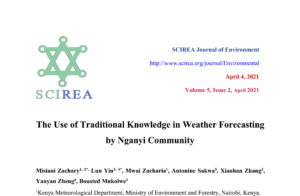
The Use of Traditional Knowledge in Weather Forecasting by Nganyi Community
Stop climate change Publications 97% of climate experts agree. We humans are causing climate crisis. The Use of Traditional Knowledge in Weather Forecasting by Nganyi
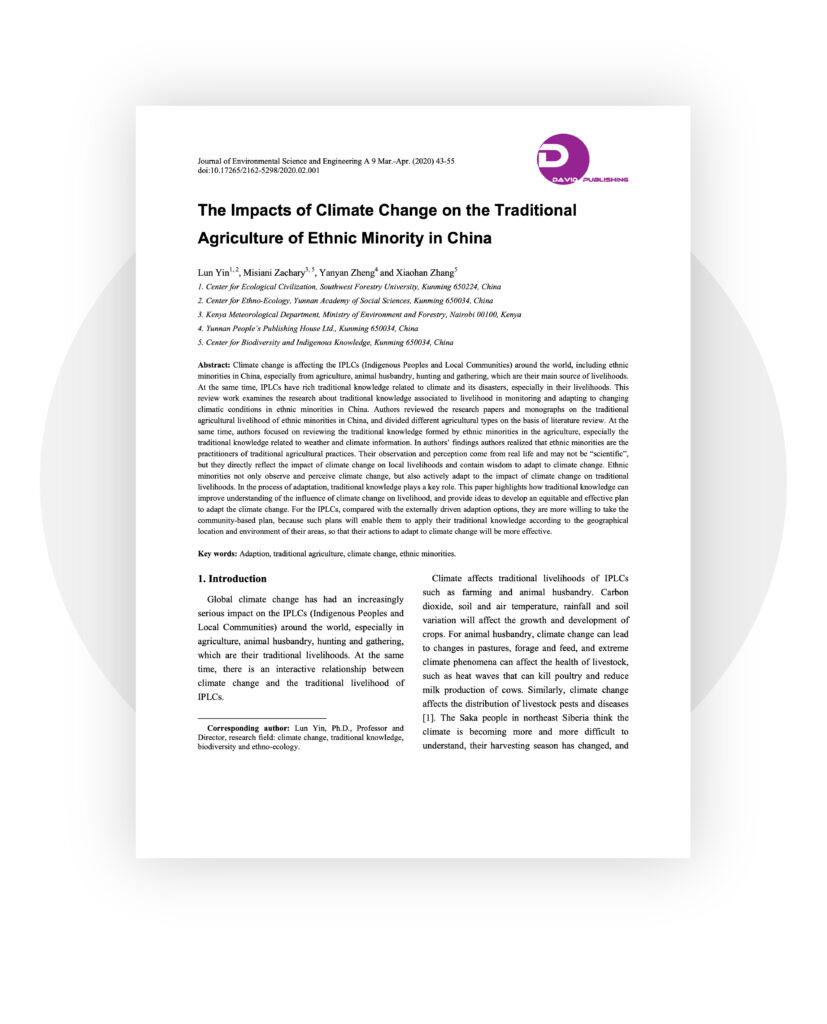
By Lun Yin , Misiani Zachary , Yanyan Zheng and Xiaohan Zhang
Climate change is affecting the IPLCs (Indigenous Peoples and Local Communities) around the world, including ethnic minorities in China, especially from agriculture, animal husbandry, hunting and gathering, which are their main source of livelihoods. At the same time, IPLCs have rich traditional knowledge related to climate and its disasters, especially in their livelihoods. This review work examines the research about traditional knowledge associated to livelihood in monitoring and adapting to changing climatic conditions in ethnic minorities in China. Authors reviewed the research papers and monographs on the traditional agricultural livelihood of ethnic minorities in China, and divided different agricultural types on the basis of literature review. At the same time, authors focused on reviewing the traditional knowledge formed by ethnic minorities in the agriculture, especially the traditional knowledge related to weather and climate information. In authors’ findings authors realized that ethnic minorities are the practitioners of traditional agricultural practices. Their observation and perception come from real life and may not be “scientific”, but they directly reflect the impact of climate change on local livelihoods and contain wisdom to adapt to climate change. Ethnic minorities not only observe and perceive climate change, but also actively adapt to the impact of climate change on traditional livelihoods. In the process of adaptation, traditional knowledge plays a key role. This paper highlights how traditional knowledge can improve understanding of the influence of climate change on livelihood, and provide ideas to develop an equitable and effective plan to adapt the climate change. For the IPLCs, compared with the externally driven adaption options, they are more willing to take the community-based plan, because such plans will enable them to apply their traditional knowledge according to the geographical location and environment of their areas, so that their actions to adapt to climate change will be more effective.
Format
Release date
A4
Mar.-Apr. 2020
Language
DOI
English
10.17265/2162-5298/2020.02.001

Stop climate change Publications 97% of climate experts agree. We humans are causing climate crisis. The Use of Traditional Knowledge in Weather Forecasting by Nganyi
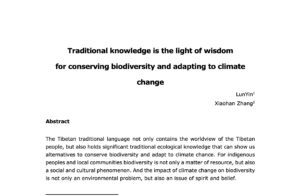
The Tibetan traditional language not only contains the worldview of the Tibetan people, but also holds significant traditional ecological knowledge that can show us…
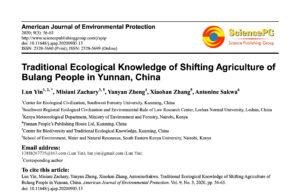
Land-use and land-cover changes directly impact biological diversity, and may cause land degradation by altering ecosystem services and livelihood support systems…
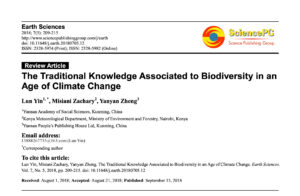
Climate change has largely influenced the biodiversity in the world, as the biodiversity hotspots areas are often also rich in cultural diversity…
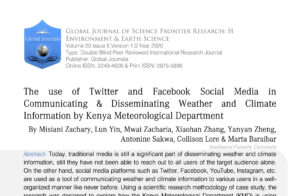
Today, traditional media is still a significant part of disseminating weather and climate information, still they have not been able to …
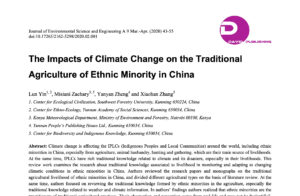
Climate change is affecting the IPLCs (Indigenous Peoples and Local Communities) around the world, including ethnic minorities in China…